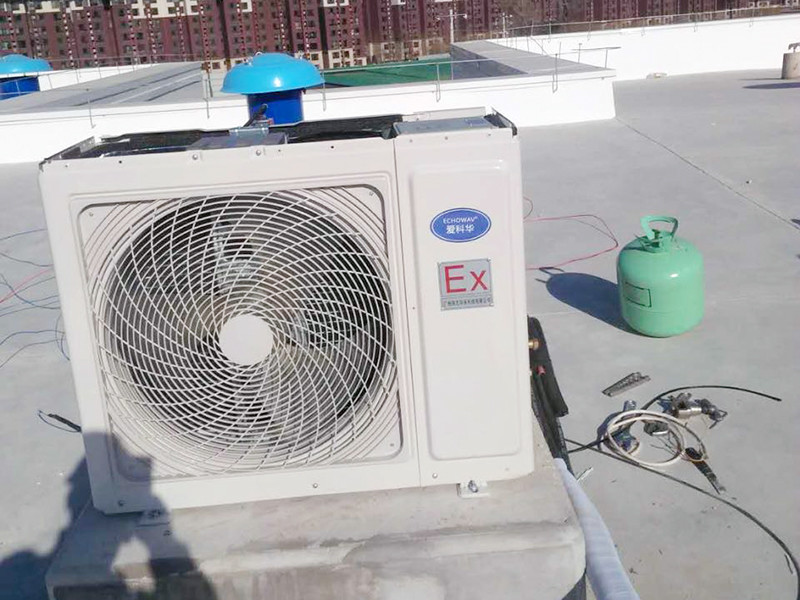During the sweltering summer days, the inability of explosion-proof air conditioners to provide cooling is indeed a less than ideal experience. There are numerous factors that can impair the cooling efficiency of these systems, with one of the primary culprits being the condensing pressure within the cooling system.

Outlined below are detailed explanations and strategies for addressing issues related to condensing pressure in explosion-proof air conditioner systems:
1. Condenser Contamination
Typically, cabin air conditioners utilize air-cooled condensers with narrowly spaced fins. Prolonged use can lead to accumulation of insects, debris, and dust, restricting airflow and increasing thermal resistance. This hampers the heat transfer process, diminishing the condensing effect, escalating the pressure on the high side, and consequently reducing the cooling efficiency while consuming more electricity.
Countermeasures: Assess the environment where the air conditioner operates and clean the external unit regularly, considering the level of accumulated dust. Employ water guns or compressed air to clean the condenser from the inside out, removing any attached debris and dust. Conducting biannual cleaning of the air conditioning external units not only ensures optimal heat dissipation but also significantly conserves energy.
2. Inadequate Condenser Configuration
In an attempt to cut costs and maximize profits, some manufacturers deliberately fit smaller condensers, adversely affecting the air conditioner’s cooling performance. This can result in frequent high-pressure alarms and recurrent cleanings of the external unit during the summer months, substantially increasing the maintenance burden.
Countermeasures: The condenser must be replaced.
3. Air Presence within the System
Inadequate vacuuming or careless refilling can introduce air into the system. Air can be detrimental to the cooling system as it impedes the refrigerant’s condensation and heat release, causing an increase in the condenser’s working pressure. As the exhaust pressure rises, so does the temperature, diminishing the cooling capacity and elevating energy consumption. It’s essential to eliminate any air present in the high-pressure system.
Countermeasures: Conduct venting operations. In case of malfunctions, vent from the exhaust port or the condenser.
4. Overcharging Refrigerant
Overcharging the system with refrigerant escalates the condensation pressure. Excessive refrigerant crowds the condenser space, reducing the condensation area and degrading the effect.
Countermeasures: Monitor and control the refrigerant quantity diligently.
 Shenhai Explosion-Proof
Shenhai Explosion-Proof
